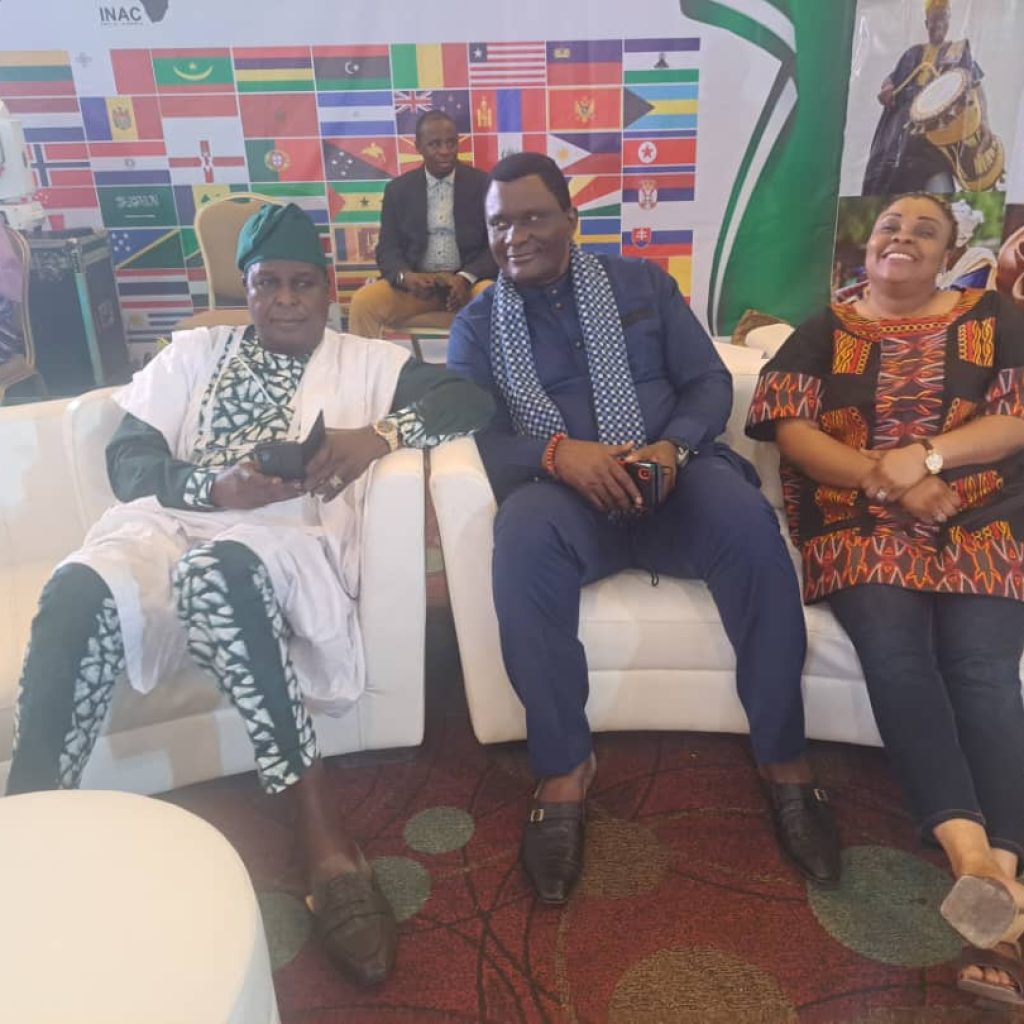
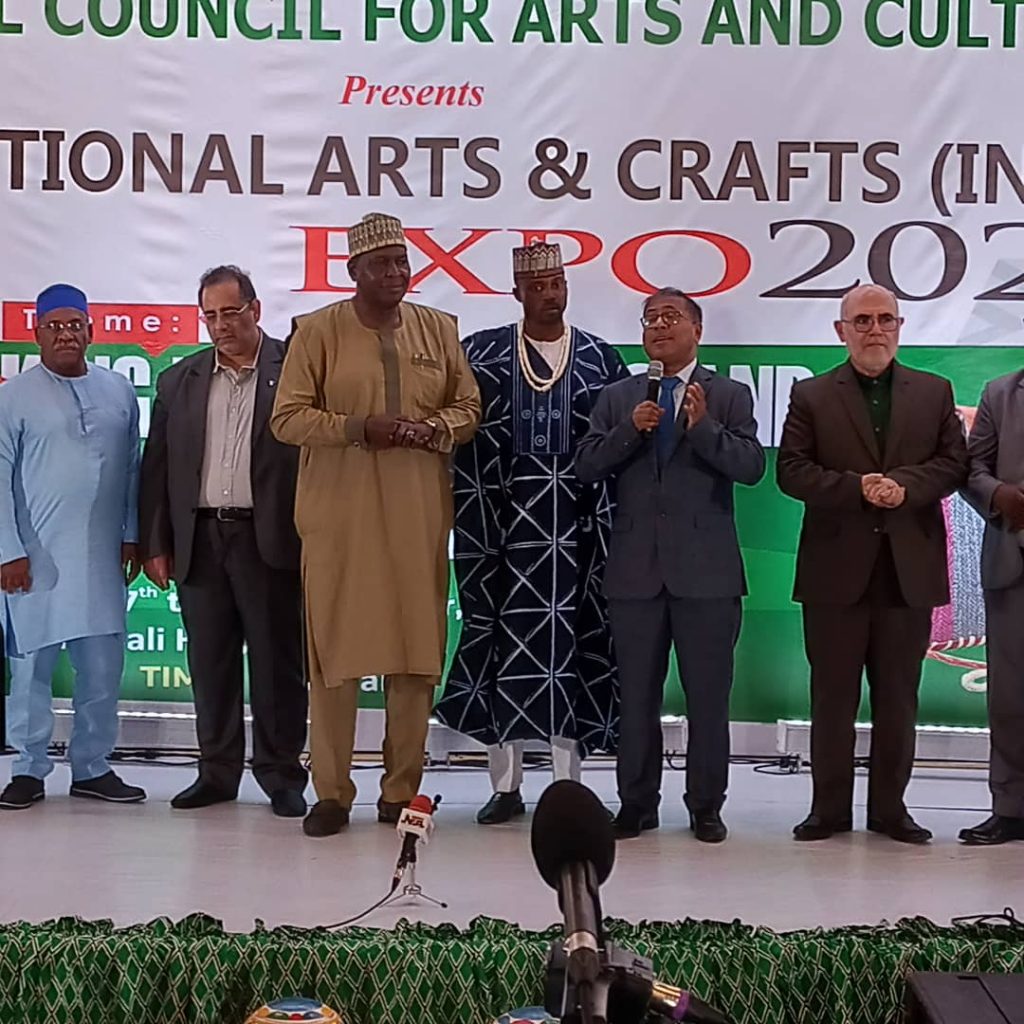
.* By Frank Meke
How Runsewe, Director General, National Council for Arts and Culture, ply his trade is a study in the unstructured works of Arts. Innovative, consistent, and with a vision far ahead of competition and the time, Otunba Segun Runsewe pumps adrenaline of excitement into national economic rebirth, sometimes provoking incredible feelings and emotions.
Runsewe is a life giver to dead woods, the burden of governance in Nigeria, particularly to cultural tourism promotion, sectors to which he deliberately and consistently lifted into national consciousness and acceptation.

He is an artist and a game changer, and if you have ever seen a piece of artistic work, desiring deep interpretation, Runsewe thoughts for Nigerian cultural tourism economy deserves wider engagement as Nigeria finds its way out of the forest of economic downturn.
As an encyclopedia of our cultural tourism realities, Runsewe, through two significant aspects of our national advantages in cultural festival, arts and crafts, occupies the space of national discussions on issues of creative solutions to job creation and employment
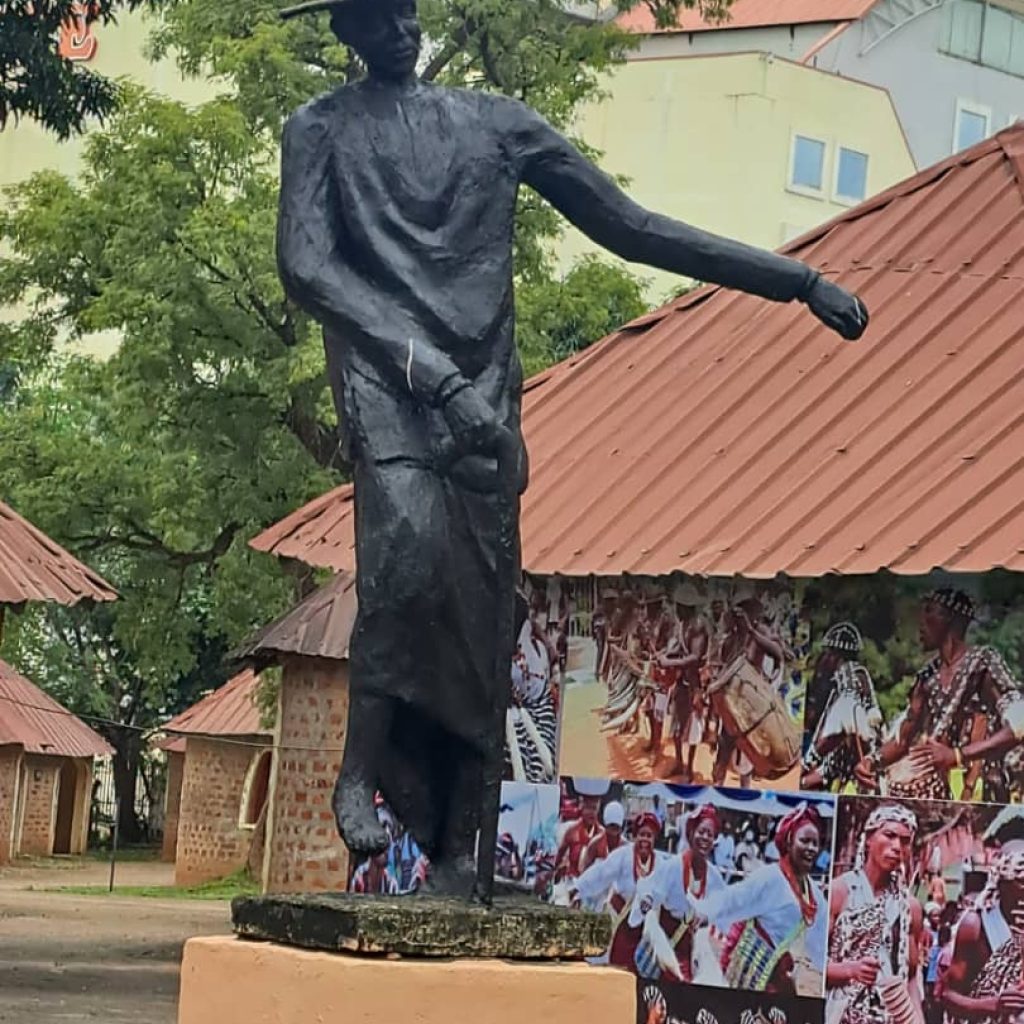
We won’t discuss, not now, the avant-garde National Festival of Arts and Culture, a national cultural tourism platform showing the richness of our dances and traditional music, and to which Runsewe elevated into a pride of national significance and resourcefulness.
My focus is on Nigerian crafts and arts. I won’t even touch the very significant marketing platform, an enduring exhibition gallery where over thirty foreign ambassadors resident in Nigeria find credible opportunity to market their creative economy and tourism.
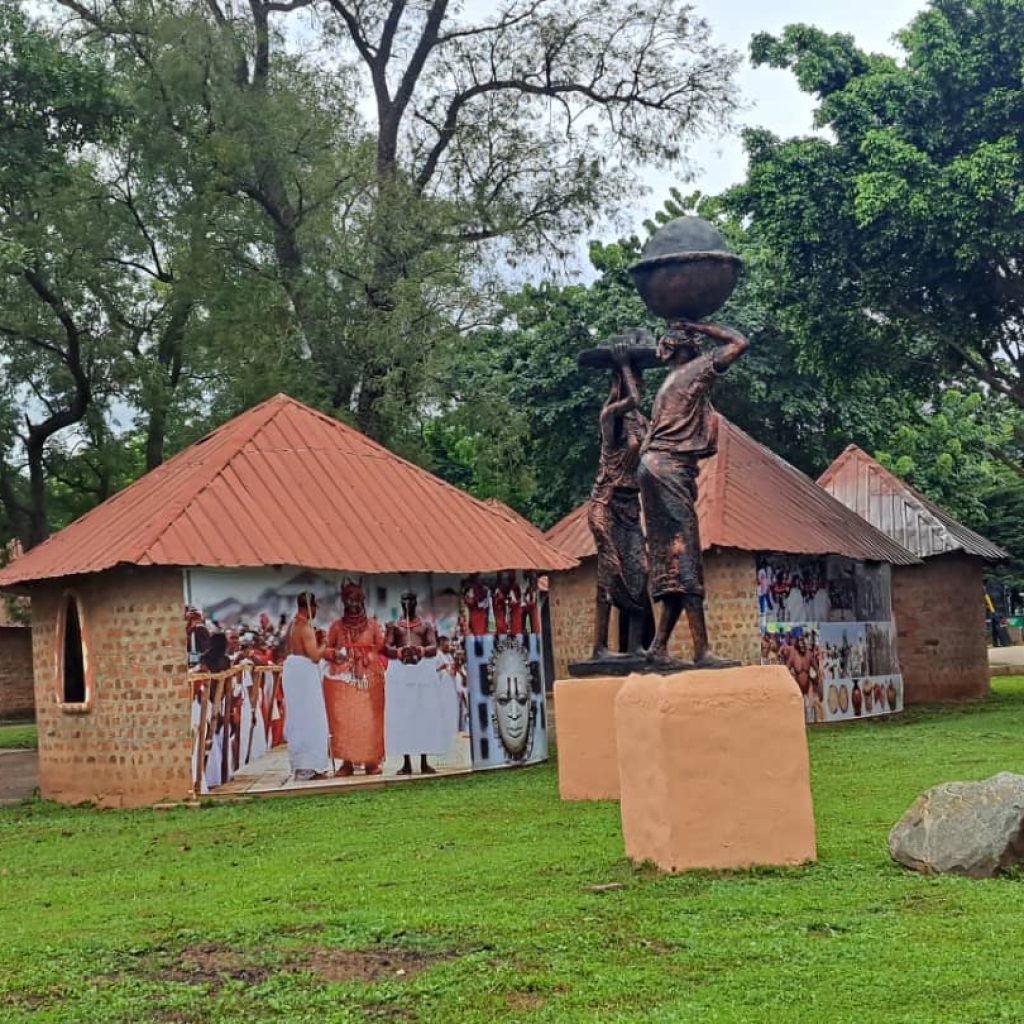
It won’t matter, but it does process the order, the route of national competence and integration to our various unique, usually unfactoured advantages in crafts and arts, a boom economy yet unbundled.
At the 16th edition of the International Arts and Crafts exhibition, flagged down in Abuja on Saturday after a three day colourful wedding of Nigerian crafts with global window of opportunities, it became apparent that the government of president Ahmed Tinubu, is on point in creating a separate ministry to harness the advantages of Nigeria on crafts and the arts. Indeed, it’s a credit to Runsewe’s blistering and unrelenting promotion of the value chain, to which before now he dubbed as as the next oil, and keenly showcased to Nigerians as a vehicle to pursue job creation and employment
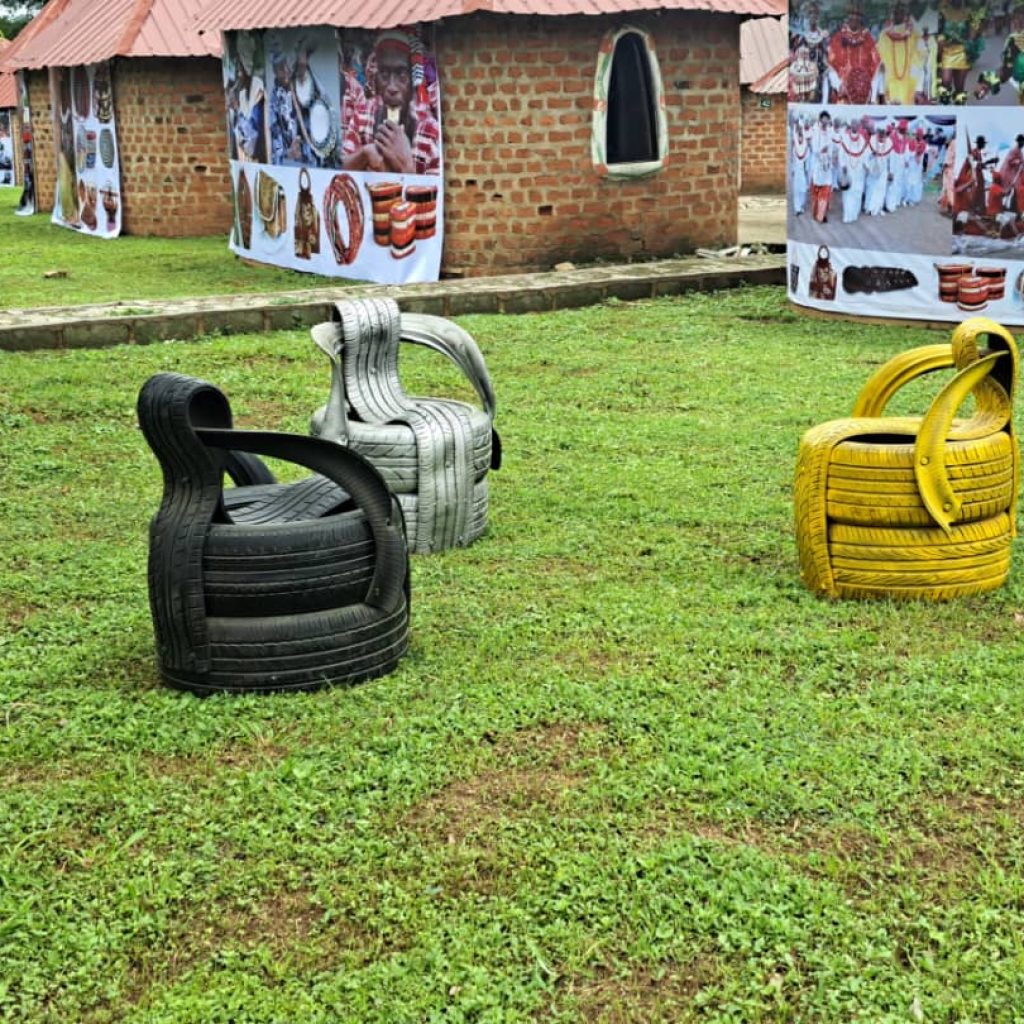
n pursuing this dream, Runsewe dutifully enthroned accountability and indeed irritates certain powers in the corridors of governance who hide in the dark, making Nigeria look sick and dependent on oxygen to survive.
Nigeria to Runsewe is sufficiently blessed to be a cultural tourism destination and should be held in awe and respect. I wouldn’t bother myself if Runsewe is not among the ministerial bridge as Nigeria finds its feet again, particularly in our cultural tourism diversity, to which his work, commitment, and deliveries speak volumes but again service to humanity is not measured on frontline appointments or recognitions. He is the best human resource we ever have in governance, and his vision is evident.
Let me share with you his new thoughts on our crafts economy. Runsewe is a master strategist. The NCAC Arts and Crafts Village epitomises our dream, Runsewe dream to advance our advantages and give the community of crafts traders opportunities to smile to the bank.
To me, and I am sure to many Nigerians, time has come for us to audit activities and action plans of government agencies to help measure the temperatures of values, gains, and benefits to our rural poor and to an economy limping on both feets.
At this point, also, we must also report that crafts’ business challenges our creative process, tasking our brains and hands to evolve tangible objects sellable in the marketplace of emotional exuberance.
The Arts, Nigerian arts is so rich , diverse, and dating back to the pre-industrial era. The Nok, Benin, ife, igbo ukwu, ibibio, Mbari, owo, ikom monolith , Tsoede, and esie, runs the first leg lane of our traditional arts ecosystem, so unique, and to which most foreign museums dots their galleries. Our music ( most people don’t know music is part of our art narrative), sculpture, literature, architecture( going extinct) Theatre, film and paintings activism now have a melting pot at the NCAC Arts and Crafts Village, located strategically in the central area of Abuja.
The village square, with amphitheatre and a diplomatic arena, greened by lush vegetation, evidently supportive of new calls to arrest the degradation of Nigeria capital state into a place to rest, invest and prosper, also showcases shopping malls architecturiased in Nigeria traditional hut flavour, with outposts for leather works, Basket and mat weaving, Batik and Dye materials, pottery, ceramic and glass crafts, fibre and flower crafts, and needle work.
These are advantages in cultural arts and crafts. The opportunities are huge, and this village, which Runsewe wished could be replicated across the nation, will trouble naysayers against our rich local crafts economy. One significant rebirth in the village square is the amphitheatre. Painted in Nigerian national colours, its presence catapulted me to surreal feelings, a round the clock meeting place for the best of Nigerian performance arts and music.
This place lubricates the revolution to which Nigeria dances, drumming, and songs could make a mint of cultural tourism viability, employing and paying artists and marketing Nigerian tourism to many people and visitors in particular may not have time and logistics to visit over three hundred tribes and tongues of the country. Here, too, Africa will meet and mingle with Nigeria, ditto the world, looking for authentic experience and contact with the true Nigerian people.
You may wonder if you could have a drive-in experience? Oh yes, the well paved alluring drive ways tempt your discovery mission, and I doubt if you will ever leave this vintage of Nigerian one shop busstop of unique crafts and arts haven without a buy in engagement. It’s was long in coming, though, and battle to wrest the place from the hands of thieving land grabbers and their cohorts from the dark side of illegal crafts and arts vendors, was a life threatening war, that nearly took Runsewe’s life but for providence.
There’s no doubt that Nigeria has shown capacity that it could provide an engaging world of arts and crafts community to experience our story and celebrate us. The village square is the mint machine for Arts and Crafts, venting open windows into our hospitality and cuisines, an unending museum that profits beyond pecuniary persuasions. I hope to be back in Abuja in a fortnight to bring you the story of our new crafts train, the new sign up investors and operators, and the jobs milled and crafted by Runsewe resilience and Patriotism.
The diplomatic community in Nigeria gave their nod, and so also are the states of Nigeria fishing feverishly to draw attention to their huge crafts value chain, basking to engage the youth in creative works , hitherto neglected for white colar jobs which has disappeared overtime. And talking about states, I didn’t see Akwa Ibom and Cross River states, and I won’t input a worrisome snide.
The ibibio arts and crafts potentials should compliment the narratives of our cultural tourism realities, not just gyration of nudity of the Caribbeans is gradually replacing the rich cultural dances, Music and fashion style of the people from this region. Let me sign out here and until next week when we shall tell you why Ogun states took the overall best diadem at the international arts and crafts expo. Last line: Where are Tinubu girls on culture and tourism? Are they scared to venture? Let’s hear from you. Bye-bye!.

